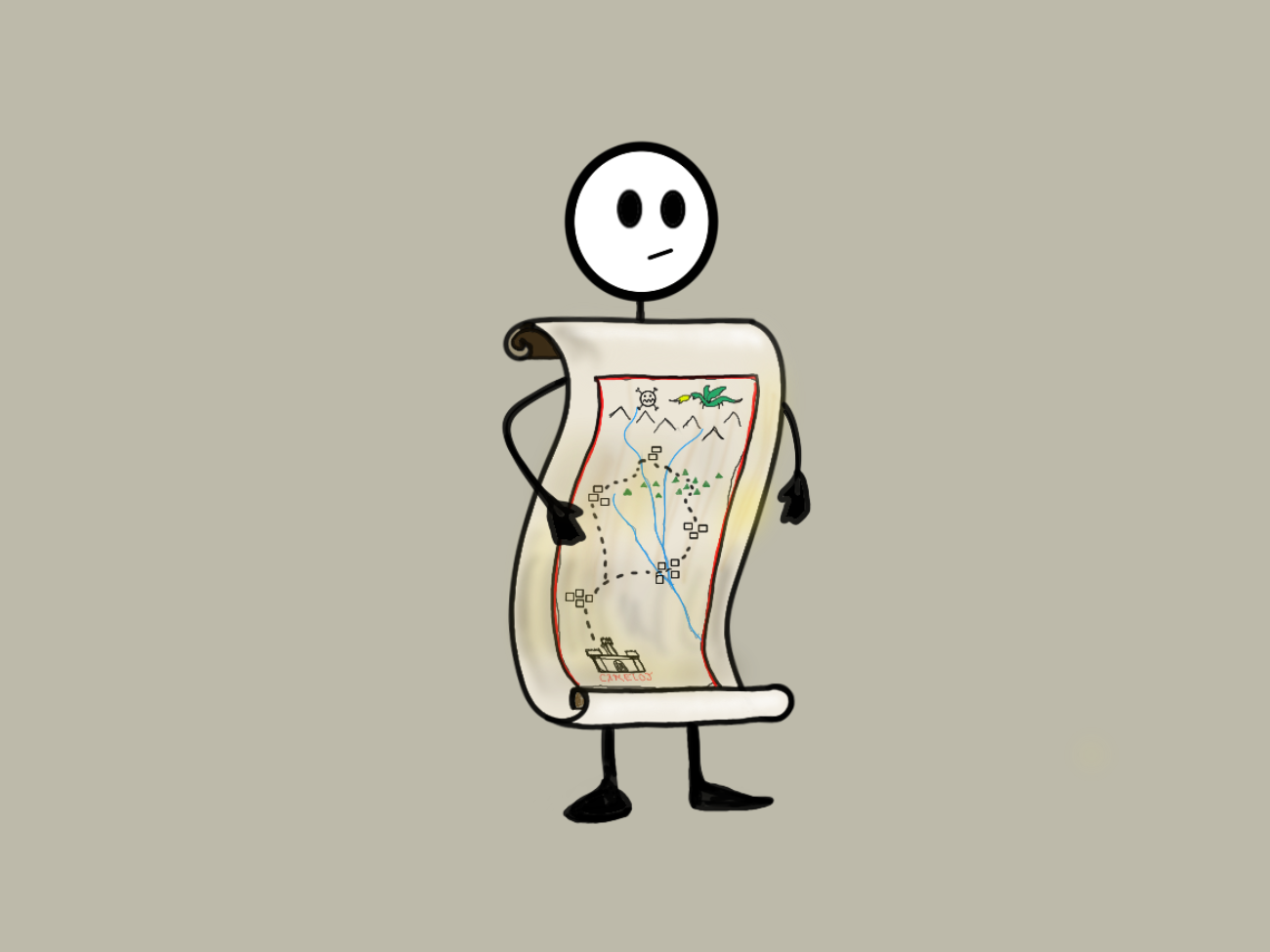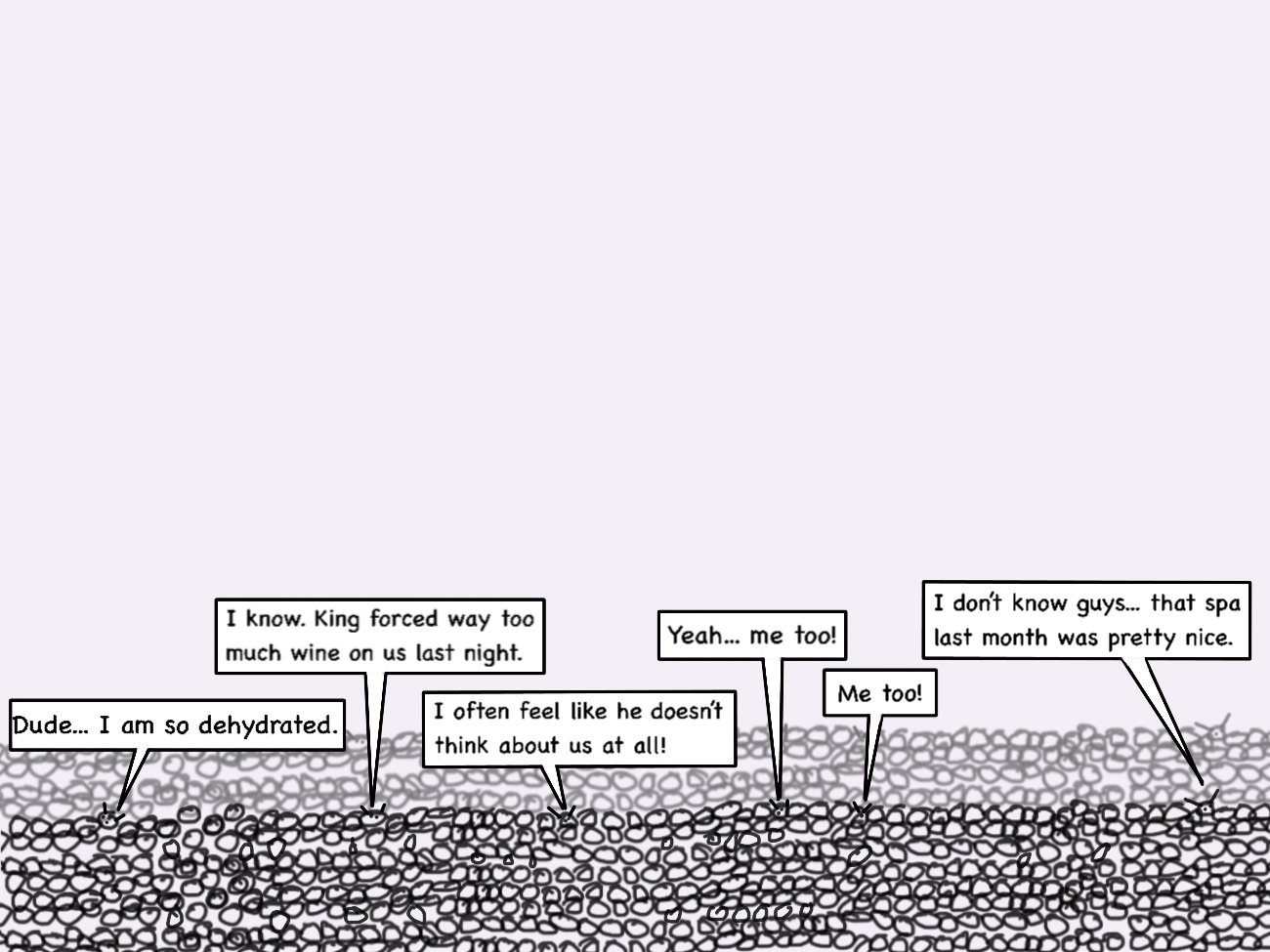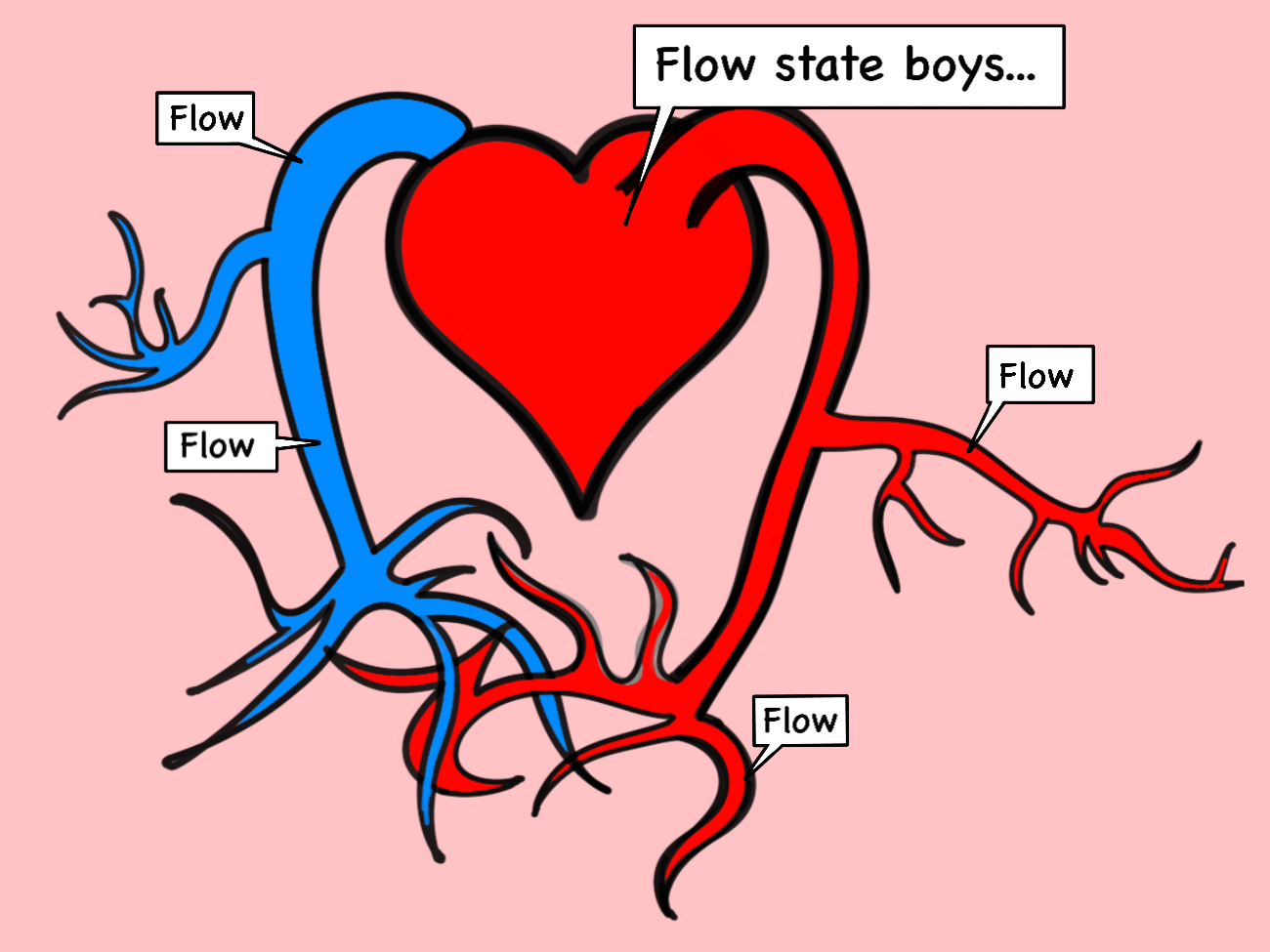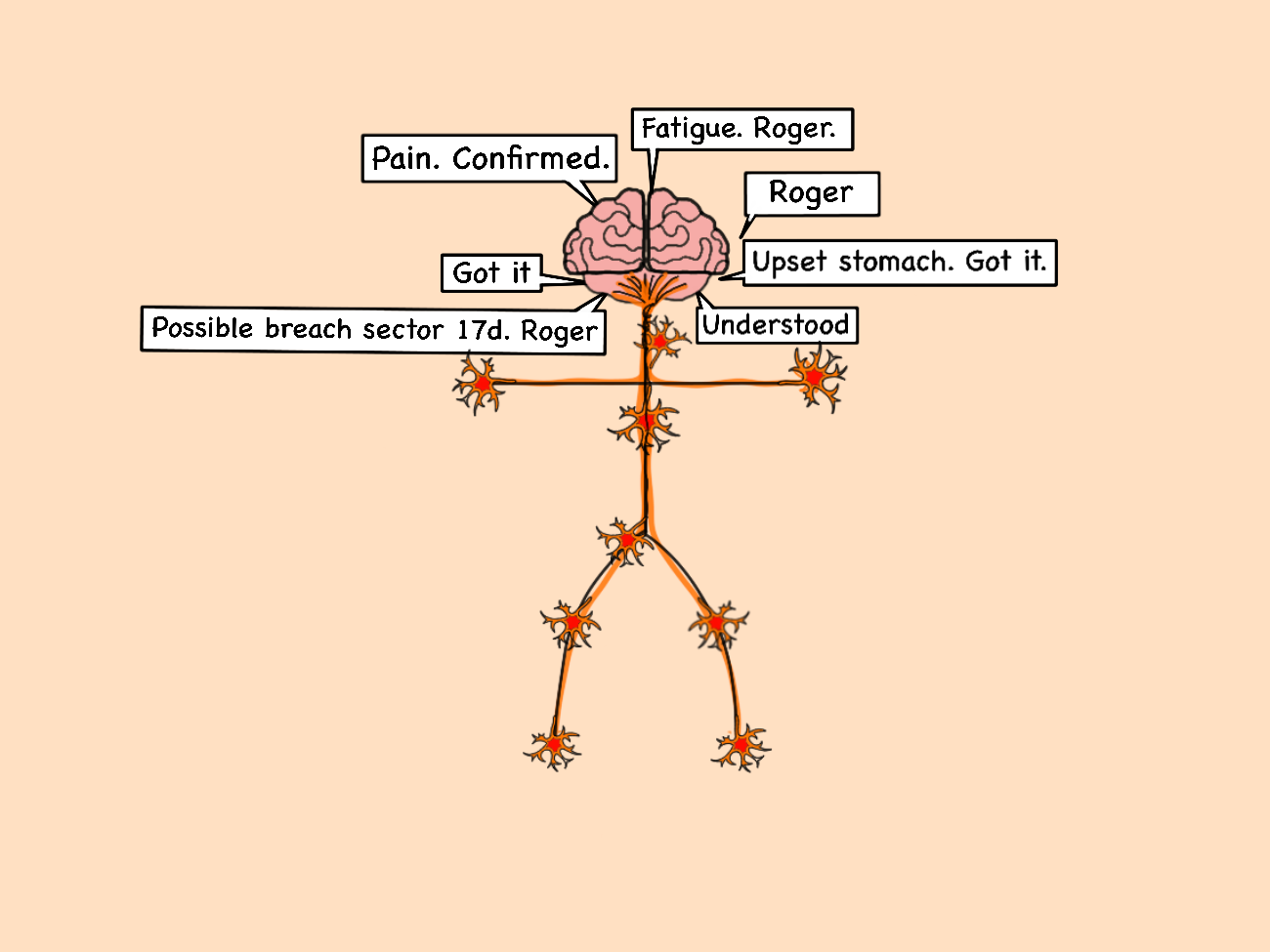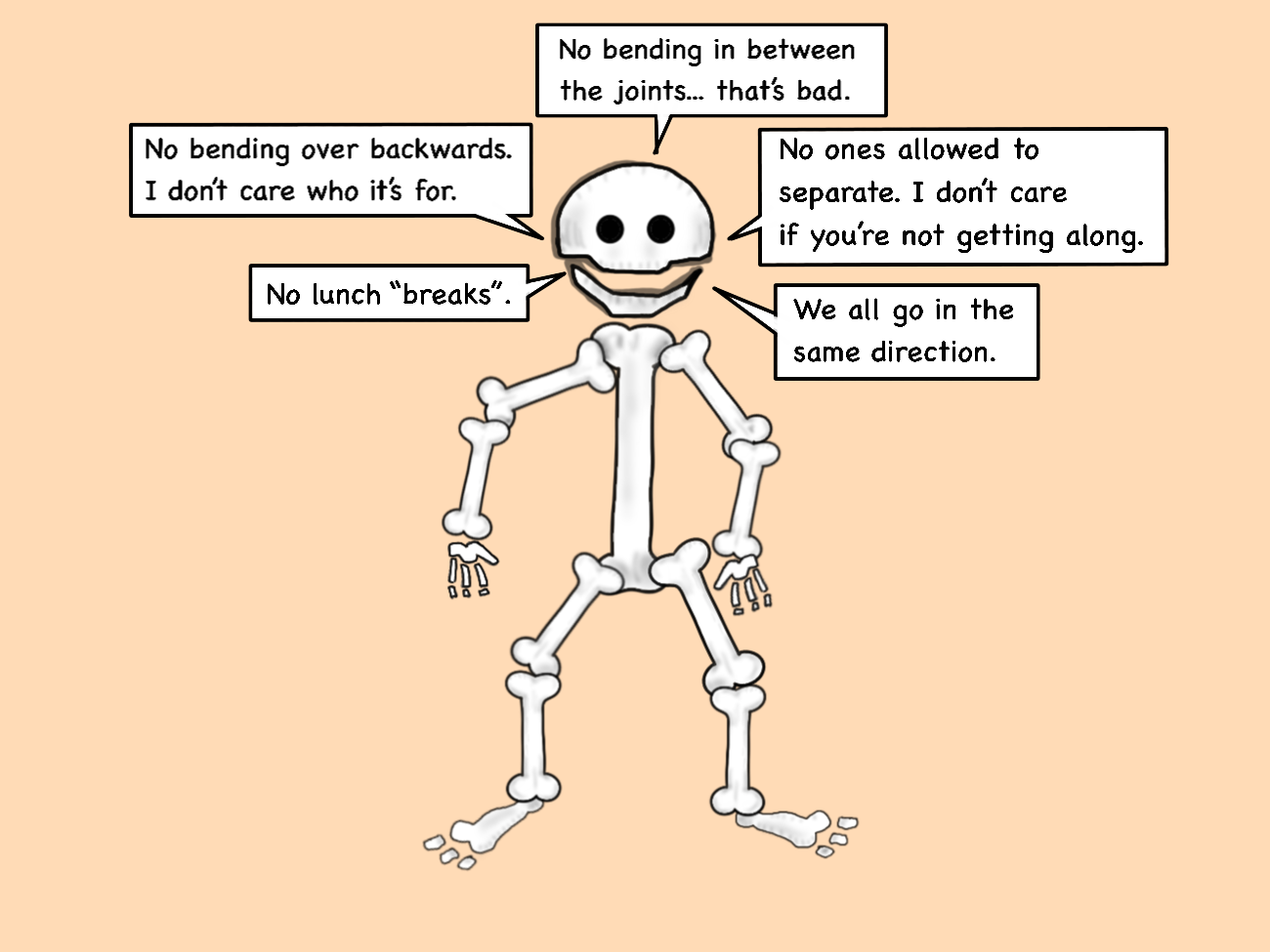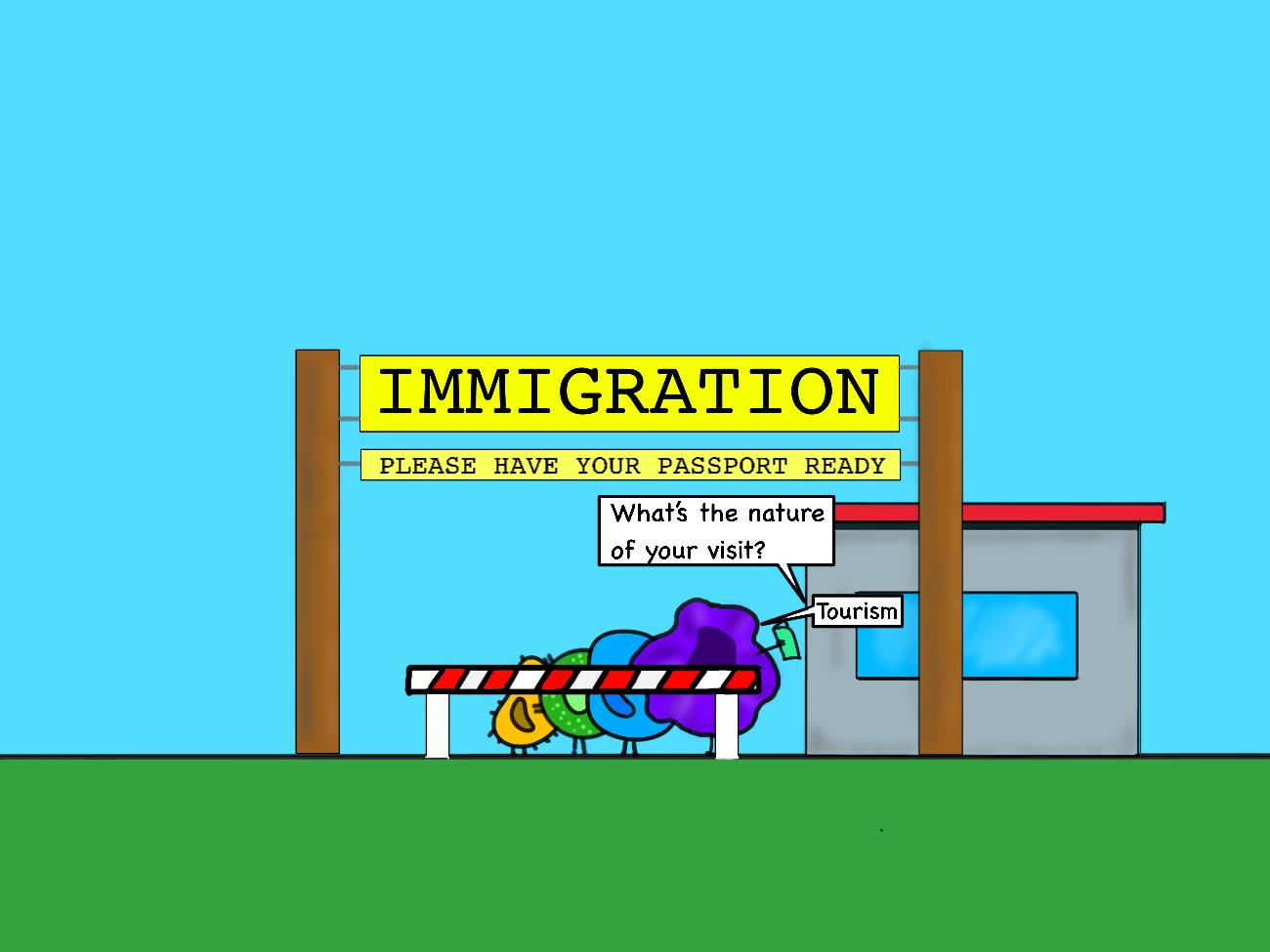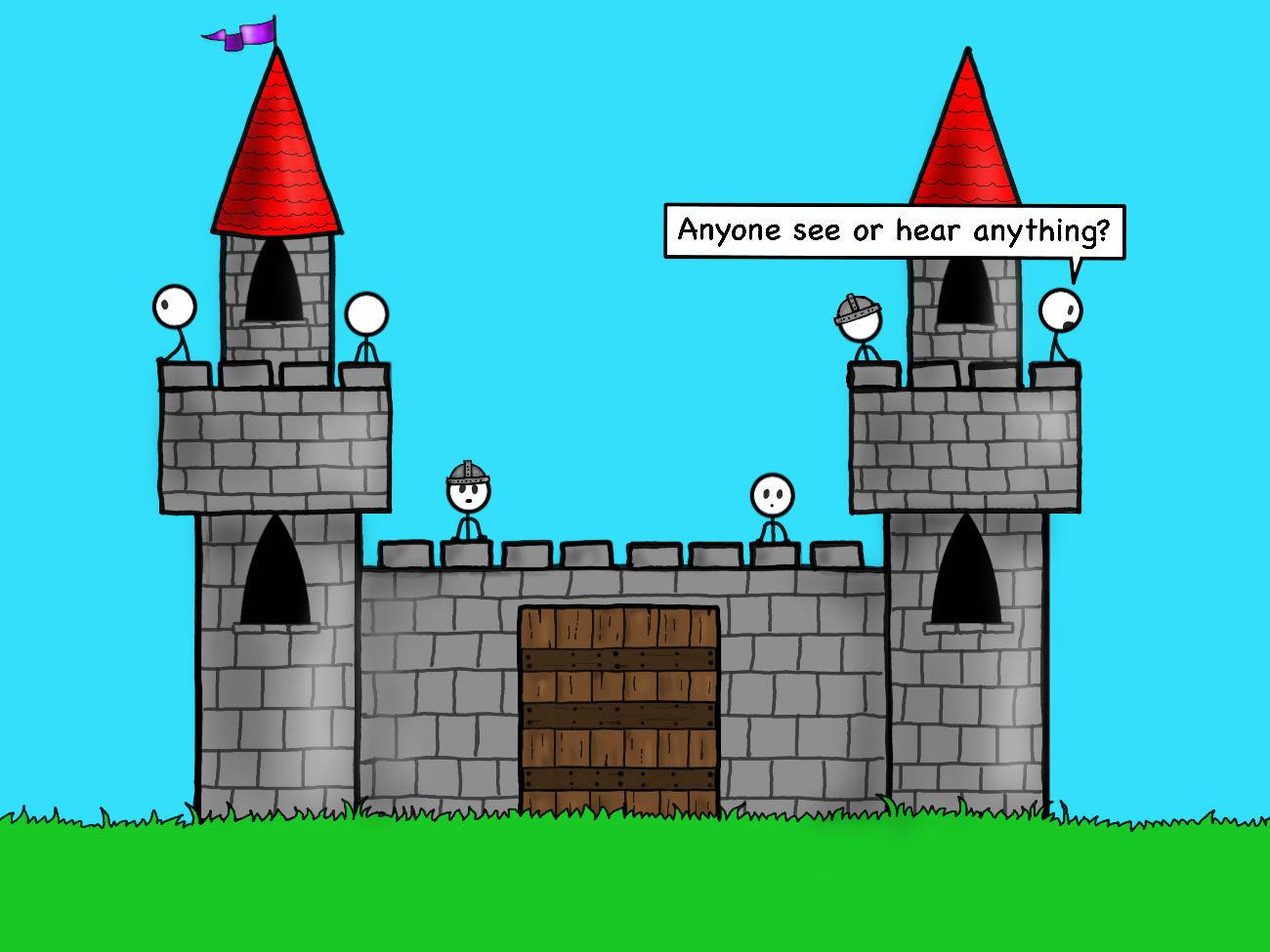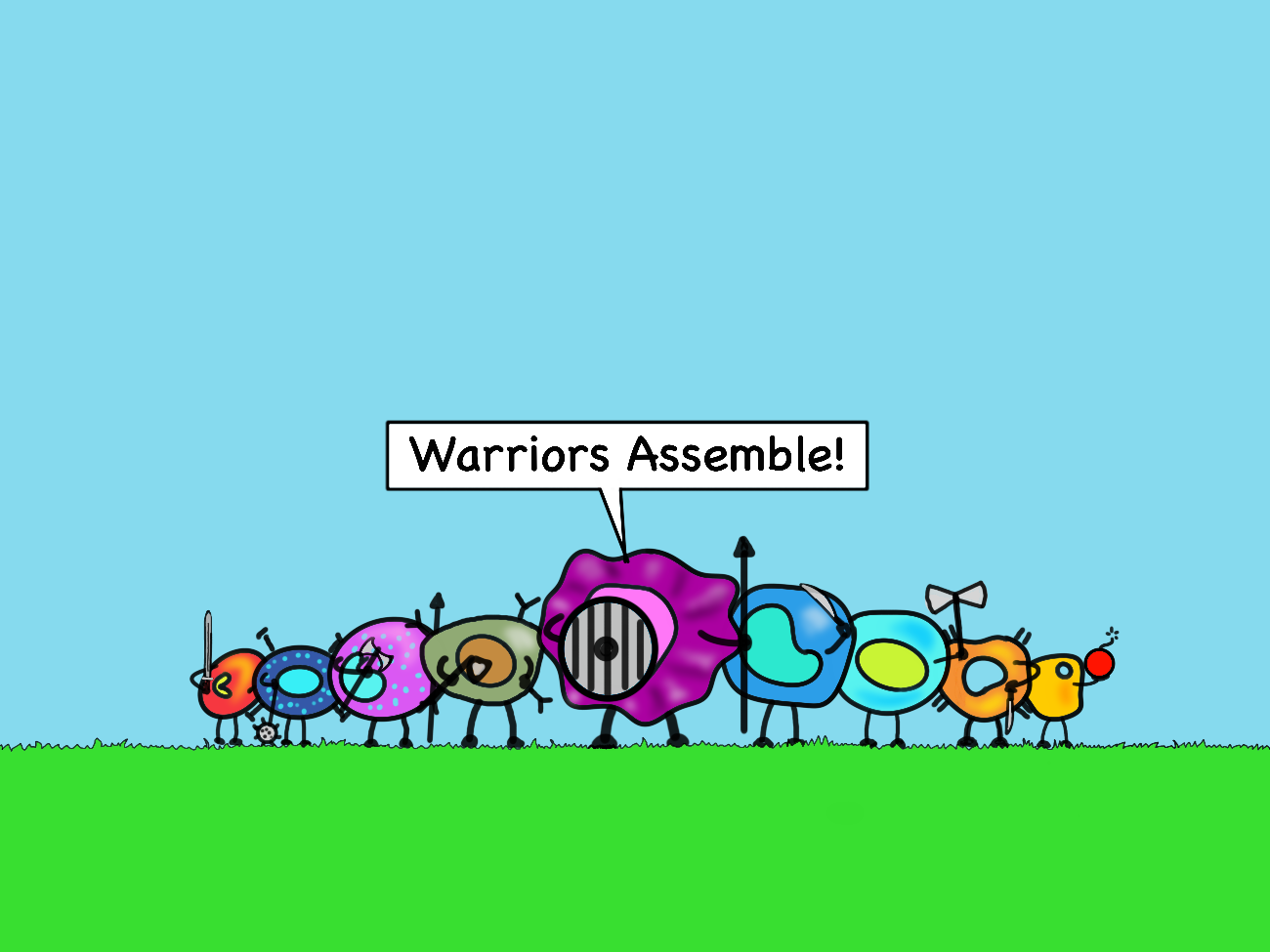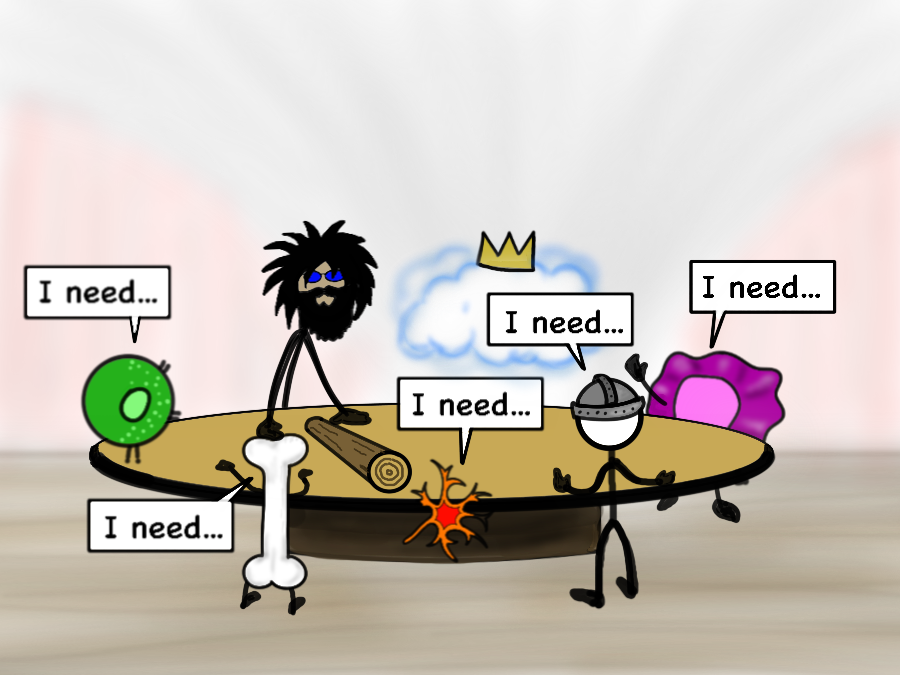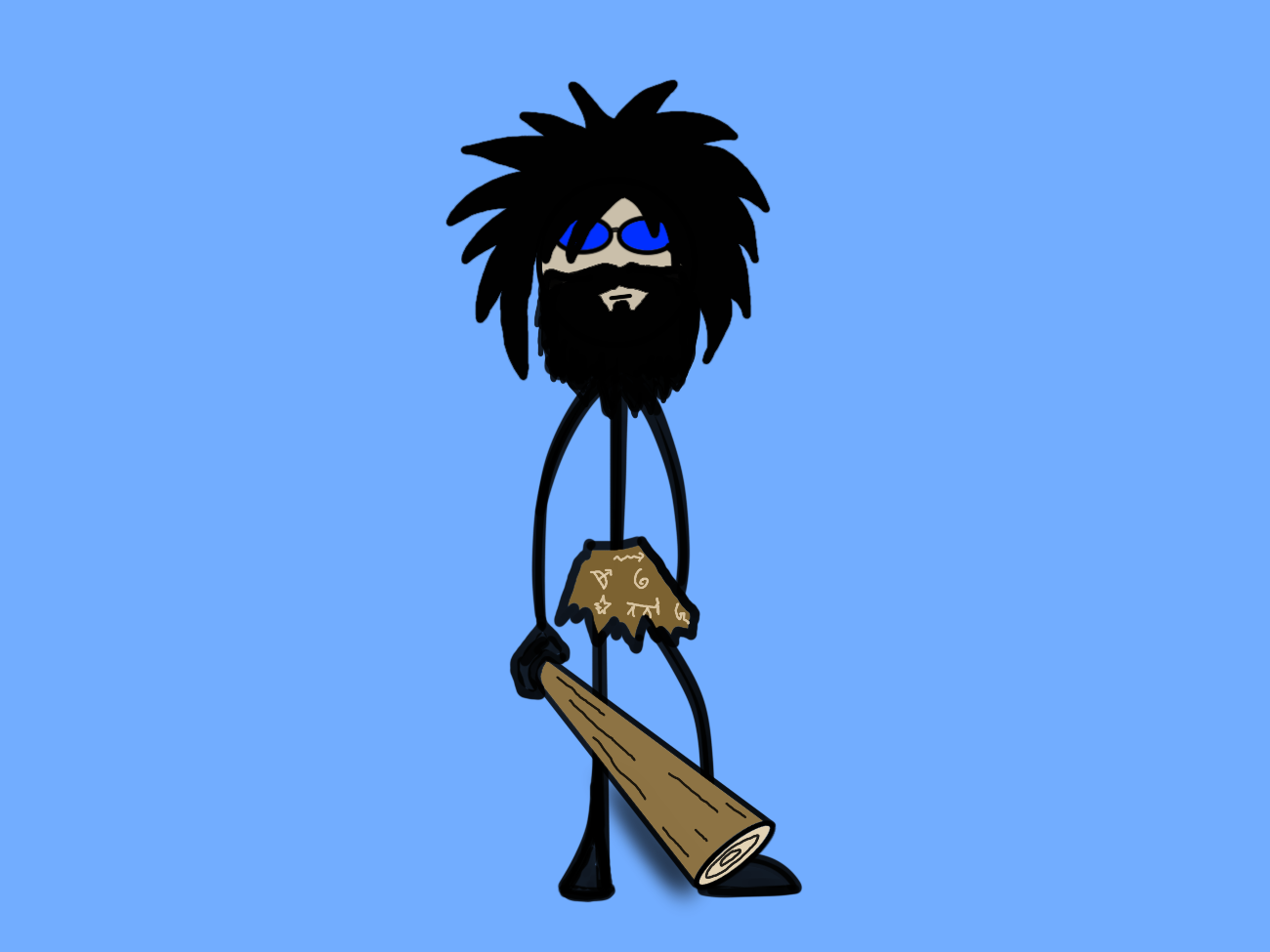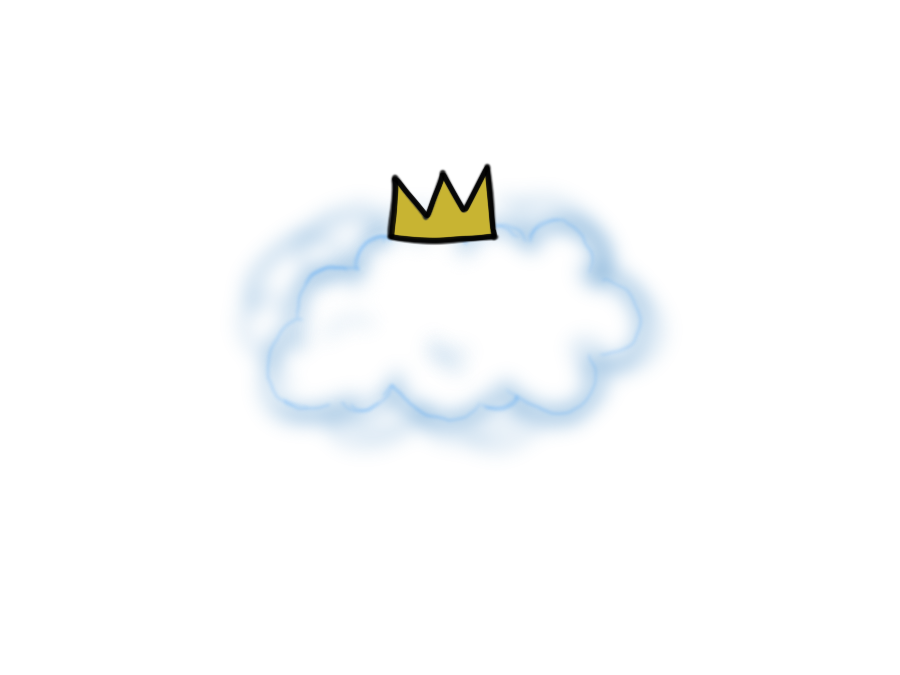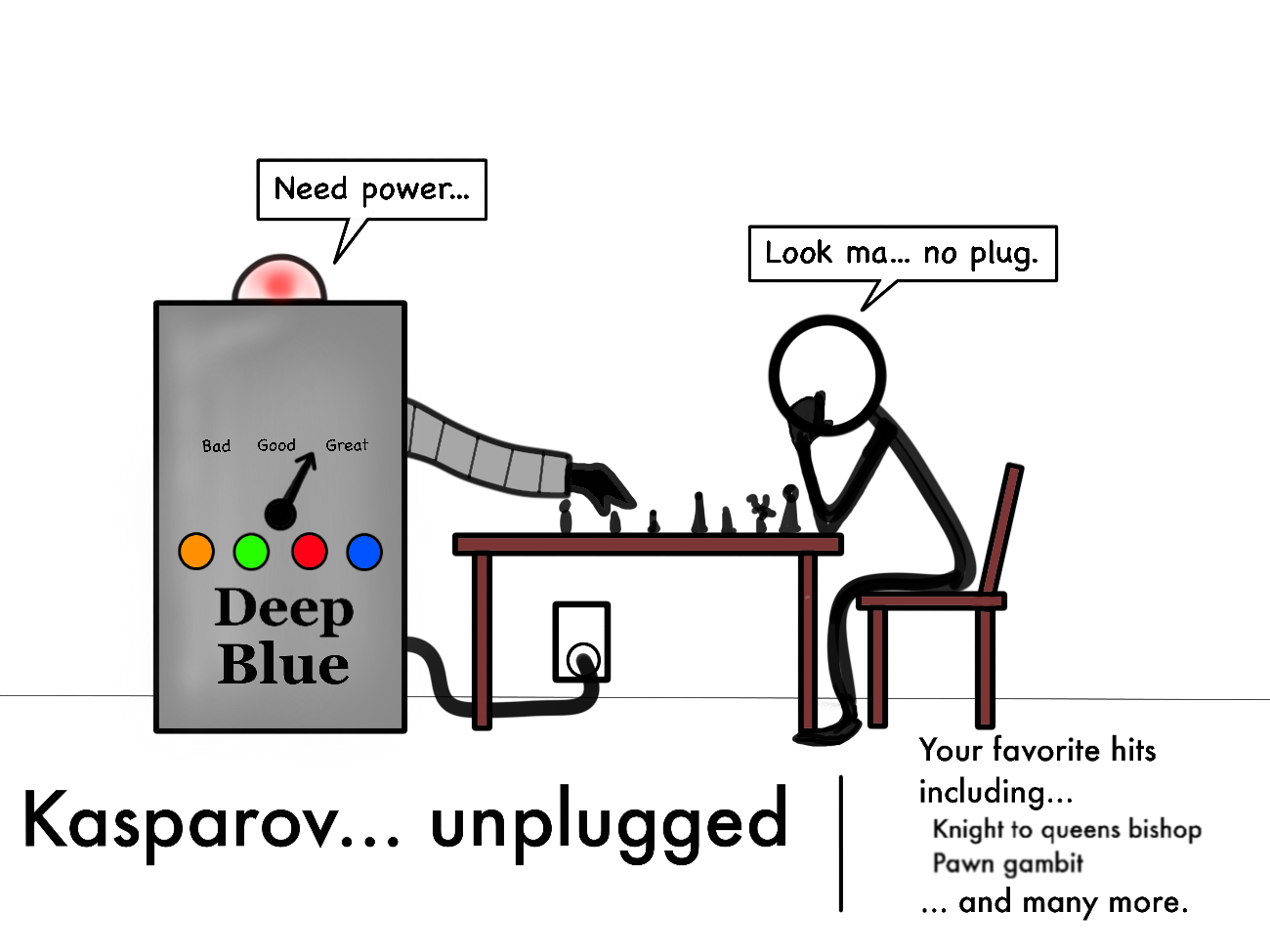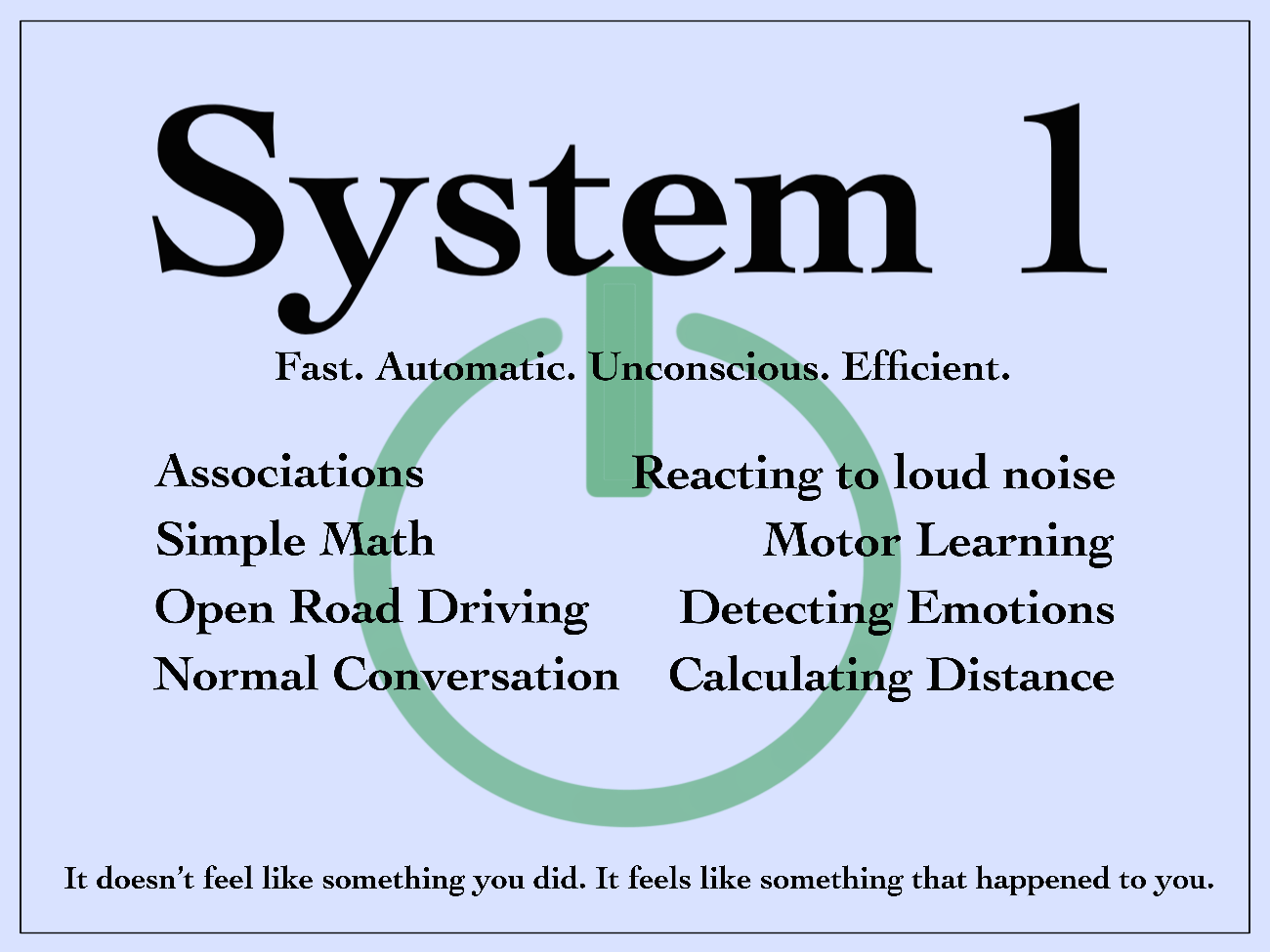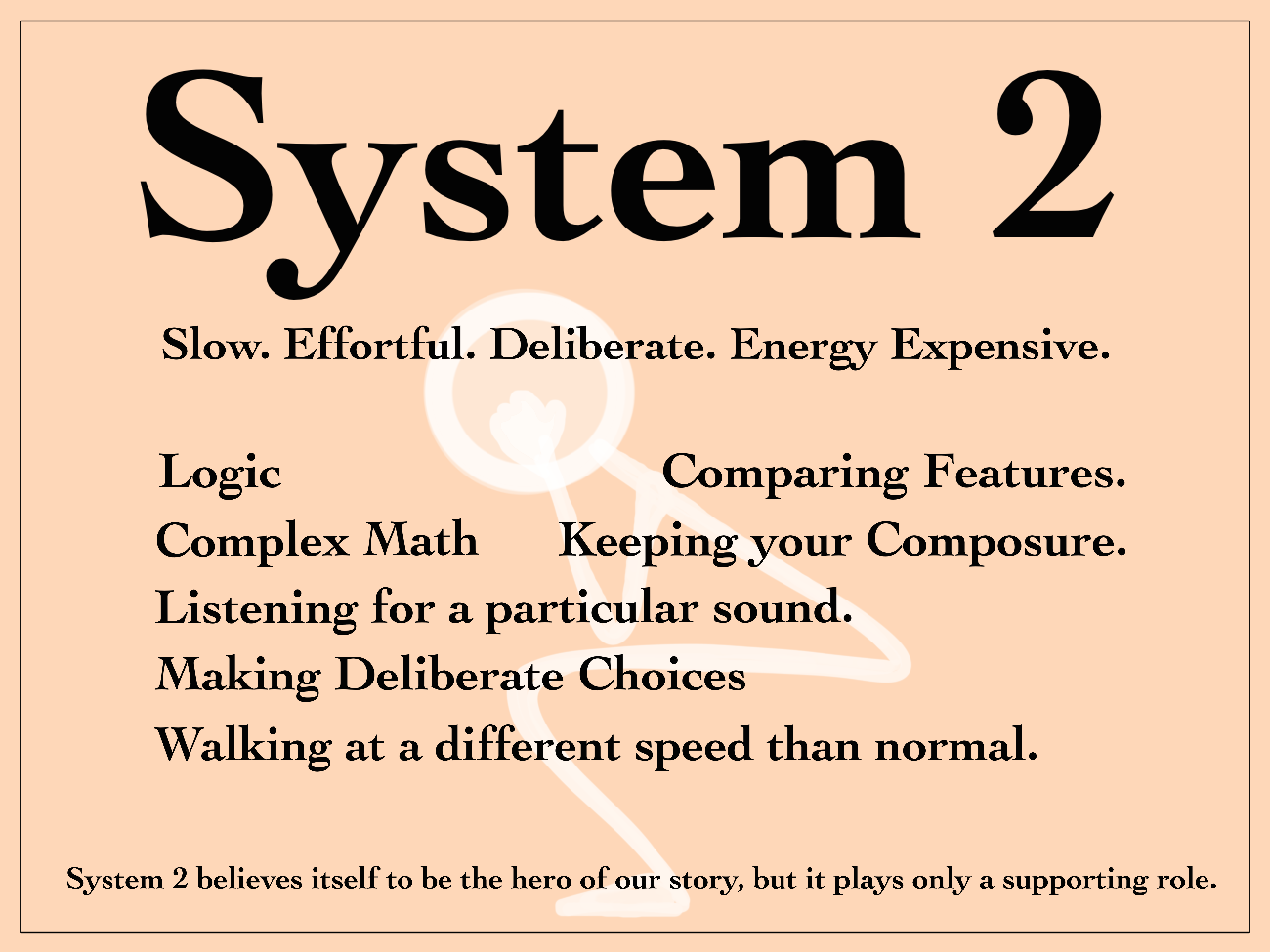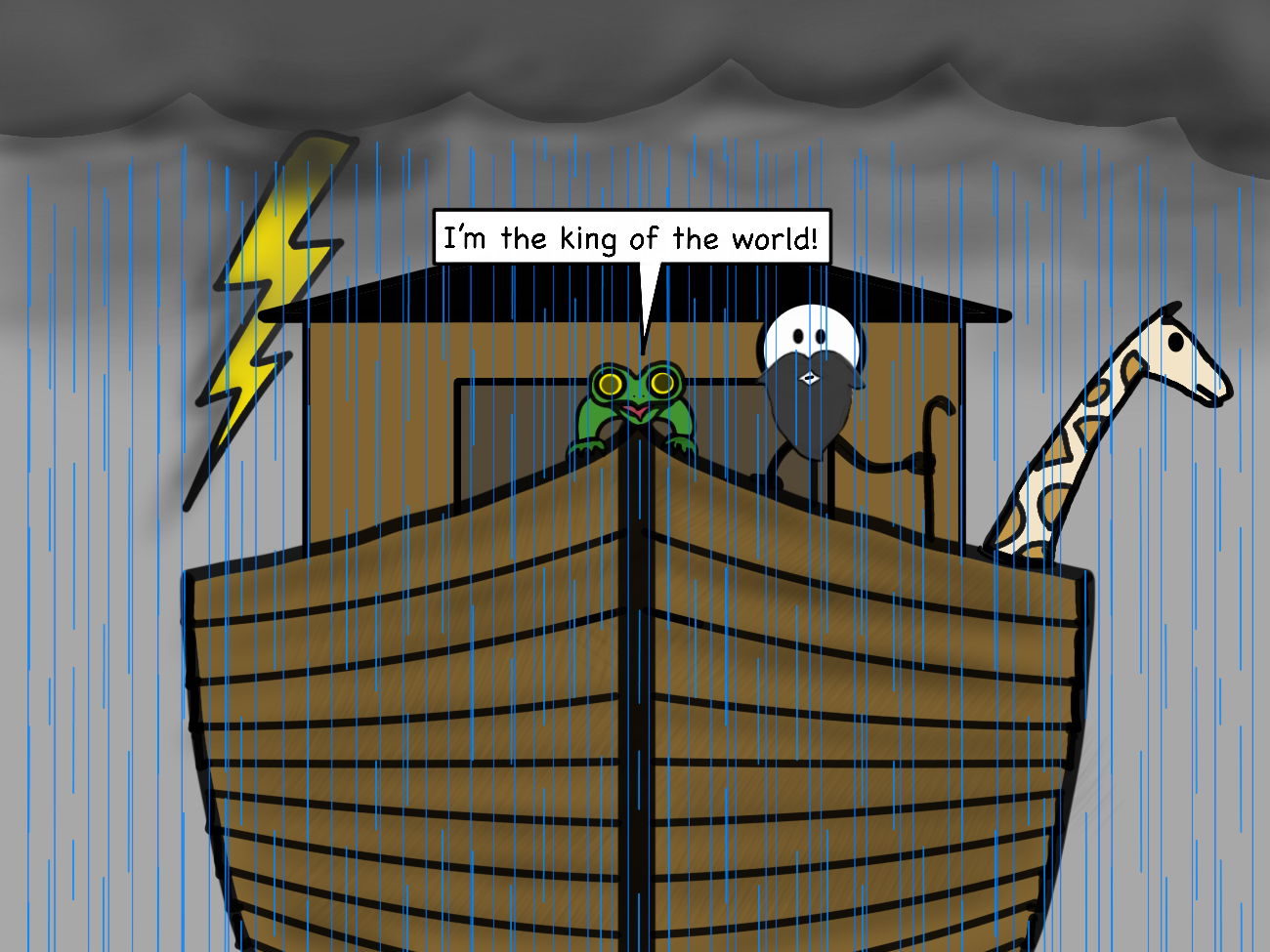Think of yourself like a kingdom.
How about Camelot? I always imagined that as a cool place. Excalibur. Arthur. Noble knights. Worthy quests. Chivalry. Honor.
Yeah?
Ok then… Camelot it is.
Your cells are your citizens.
Your circulatory system represents the trade and transfers that keep the kingdom in the black.
Your nervous system collects intelligence from even the smallest outpost.
Your bones the rules that provide the structure.
Your skin: customs and immigration.
Your eyes and ears: the lookouts.
Your immune system: the army that fights off foreign invaders.
And your brain is the round table. Where all those energy systems convene to drink and debate and make their case for their needs.
And the decisions that come out of those meetings are made via that bottom-up / top-down filter interface that I mentioned in the last chapter.
Let’s unpack that interface a little more.
Two Filters
At the bottom of the interface is a primitive character. An evolutionary descendent who has one mission… survival.
I imagine it like this guy…
I’ll call him Ug. He’s a big reason we’ve made it this far.
Ug hasn’t changed much in the last fifty-thousand years. In fact, as far as Ug is concerned it’s still fifty-thousand years ago.
Truth? Reality? Who gives a fuck? Ug doesn’t think. His motivation is purely to execute what it came wired to execute. Survival. Ug is the hungriest, horniest, most social, most paranoid, most violent, most deceptive, most manipulative, most insecure, playful thing on earth.
To Ug a sex tour of Thailand offers far more payoff than walking the Camino. He needs another beer, if everyone else is having one, and also a second helping of dinner… maybe even a third, or fourth if it’ll fit.
People didn’t die from fatness fifty-thousand years ago. Sex addiction hadn’t yet been conjured up by some guy trying to placate an angry wife – or maybe it was the other way around. And being a member of a tribe is important because… safety in numbers. Also more sex, more food, and more play.
And seeing a threat behind every rustling bush keeps you alive to enjoy them all.
The top down part of the decision making spectrum is run by that part of you that thinks it’s in charge.
I’ll call him the King. He’ll be a big part of the reason we continue to survive… if we continue.
If you know anything about history you know that the king only thinks he’s in charge. Yeah… he may make the decisions but those decisions are based on the information given to him by forces that have their own agenda.
Garbage in… garbage out.
And the illusion of being in charge is appropriate here because… you may think you are the thinker of your thoughts… but you… yourself are just another thought.
It’s true. That vision you have of yourself as the controller… it’s an illusion. Think about all those systems doing their thing in your kingdom right now. Are you… the you that’s reading this, really consciously controlling it all?
King perceives and attends to the world through it’s goals. Those goals are what shape it’s sensory experience.
King is in many ways the opposition of Ug. It thinks and chooses and worries about what happens the second after we give into one of Ug’s urges.
We’ve all been there… and know how awkward that can be.
But because King filters out everything that doesn’t see leading to it’s goals… he too has a highly limited view of what’s really going on.
Think of King like that otherwise smart guy who believes the email it got from a deposed Nigerian prince… needing five grand to unlock his vast fortune, really came from a Nigerian prince.
King and Ug clearly need each other. Or rather you need them. But it’s obvious that your best life is lived somewhere in between the two. Too much King you lose sense of the world. Too much Ug and you drift into singe cell territory… all knee jerk.
And finding that optimum place is one of the big tricks to life.
When I was a kid my parents took me to some big time art museum. I can’t remember which. But I remember asking the guard why there was a rope separating the people from the paintings.
My dad gave me that “duh” look and said it was to keep the mindless masses from soiling the art with their grubby mitts.
But as we were walking away the guard pulled me to the side. She explained, outside of my dads earshot, that the rope was the best distance for someone to appreciate both the brushwork and the art it created.
Every waking minute of every day we’re looking for that spot.
Two Systems
King and Ug represent the forces behind our thoughts. But there’s another dynamic in play in the thought game… the conservation of energy.
And this gives rise to two distinct systems of thinking.
In all the analogies we make between the functions of our brains and computers there is one detail we always gloss over: we don’t need to plug in.
When Deep Blue, the computer, beat Gary Kasparov, the chess grandmaster, Deep Blue needed the power equivalent of a city block. Kasparov played unplugged… and very nearly won.
The brain achieves its efficiency by automating a good deal of it’s efforts.
For example: a bat and a ball together cost a dollar and ten cents. The bat costs a dollar more than the ball. How much is the ball.
Have your answer?
Is it ten cents?
Sorry… wrong answer. I’m gonna miss Alex Trebek.
Remember the bat is a dollar more than the ball. If the ball is ten cents, the bat would be a dollar and ten cents. And those two don’t add up to $1.10.
The correct answer is five cents. And I’ll bet you that even if you got that answer your brain first threw out the ten cent answer.
What you just experienced is what the great Daniel Khaneman calls system one thinking.
Another example: this morning I woke to the following news story: Michael Bloomberg spent 500 million of political adds. There are 327 million US citizens. He could have given every citizens a million… with plenty of room to spare.
Uhhh… I think you guys dropped a few zeroes.
Normally no big deal… right? Except the story was believed by millions and ultimately reported by Brian Williams and NYT editorial staff member Mara Gay.
I want you to imagine how many checks a story has to get through before it’s read on the national nightly news.
A LOT.
And system one fooled them all.
System one thinking is automatic. Relies on heuristics for its answers – that’s geek speak for the cool trick it does. And, as you just discovered, is not always accurate.
What makes it even trickier is… the feeling that you had the right answer, that was also generated by the brain and it is very difficult to ignore.
System two thinking – deep thought – is resource intensive. It requires the brain to pull resources from other systems and diminishes their effectiveness. When deep in thought your pulse quickens, and your field of vision narrows to the point where you become effectively blind.
Being distracted and blind is no bueno in the survival game.
Quick question: you know the story of Noahs arc… yes?
Good. How many of each animal did Moses load onto the arc.
Have your answer?
Is it zero?
It should be.
Moses didn’t load any animals onto Noahs arc. Noah did.
System one strikes again.
These blind spots in our thinking are called cognitive biases. We are all riddled with them. Here is a list of the most common ones.
Ten minutes on twitter will prove their existence. Actually… I doubt you will even need ten.
And then there’s this: “even knowing we are bad thinkers… filled with cognitive biases doesn’t help us become better thinkers.“ That also from the great Khaneman.
Another interesting thing about the interaction between these two systems is that although system 2 doesn’t kick in all that often… it writes itself in as the hero of our story.
This is why we think we are such good thinkers… despite all the evidence to the contrary.
So here’s the sitrep: our filter system filters out everything that doesn’t advance our self interest… which is obviously the overwhelming majority of what’s going on.
And it cobbles together the little it does notice as lazily as possible.
Which means our brain doesn’t see the world as it is. It sees the world that’s useful for it to see.
Clearly we were not designed for accuracy.
That’s probably not what you were hoping to hear.
But… don’t worry about it too much. The fact that we’ve made it this far tells us that accuracy isn’t key to our overall survival.
But fitting into a group is.
In the next chapter we’ll see the effect that the need to fit in has on our thinking.
Chapter 1 – The Lights Come On
Resources:
Daniel Khaneman – Thinking Fast Thinking Slow
Alan Watts
Adam Gazzaley
Sam Harris

